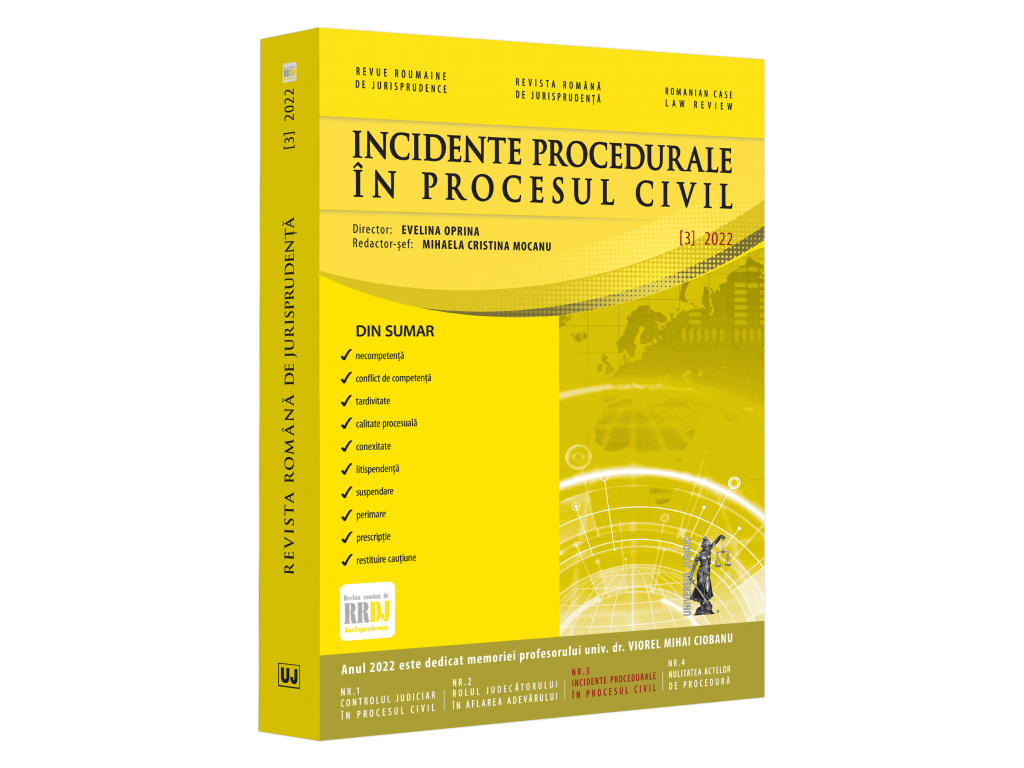Stamp duty review. Concept of public institution and public revenue in the meaning of Art. 30 para.1 of GEO no.80/2013. Autonomous local or county government. Non-compliance with the text of the stamp duty exemption.
JURISPRUDENȚĂ COMENTATĂ ȘI ADNOTATĂ
Abstract
1. From the reading of Art. 30 para. 1 of GEO no. 80/2013 it follows that, in order to benefit from the exemption regulated by this text, two cumulative conditions must be met: a) the request is made by a public institution; b) the request concerns public revenue.
a) In principle, even if they are involved in satisfying a need of a general nature or a public interest, on a regular and continuous basis, the autonomous local or county government does not produce either administrative acts or (much less) administrative operations. Although both the public institution and the local or county autonomous directorate are two concepts closely linked to the assumption of providing a public service, the mere fact that both types of entities appear to be established for the same purpose cannot lead to the conclusion that the local or county autonomous directorate is assimilated to the public institution. From the analysis of Art. 92 para. 2 of the Administrative Code shows that the law makes a clear distinction between the public institution and the autonomous local or county government, a concept that is consistently found in this normative act.
b) The subject matter of the claim in the present case represents "damage caused to RAJDP Constanta" which is alleged to be due under a form of civil liability, so that it cannot constitute "public revenue" within the meaning of Article 30 of GEO no. 80/2013 because, regardless of the fact that it will ultimately be recorded in the income and expenditure budget of RAJDP Constanta, it does not represent revenue due under a legal provision in the form of taxes, duties, contributions and other payments as defined by Law no. 500/2002.
2. With regard to the application of Article 28 of the same legislative act, it is held that the main purpose of the text is to provide a uniform solution as to whether or not a court fee is payable in respect of the hearing of certain categories of application, regardless of the stage of the proceedings at which those applications are brought before the courts – first instance, ordinary appeals or extraordinary appeals. According to Articles 31 and 33 of GEO 80/2013, each court is obliged to determine the amount of the court fees for the applications it is seized with, this fee being due both for the trial at first instance and for the exercise of appeals.
In addition, the legislation on stamp duty contains a solution of principle which shows that, in principle, the court of judicial review is not bound by the decisions of lower courts regarding the parties' obligations to pay stamp duty.








